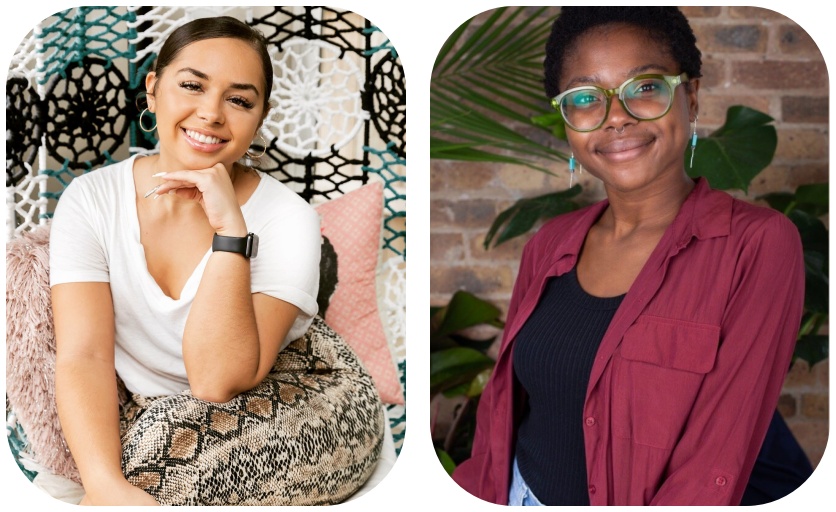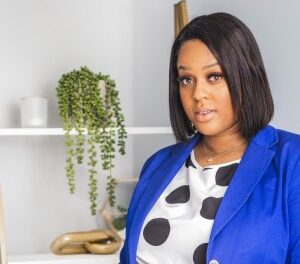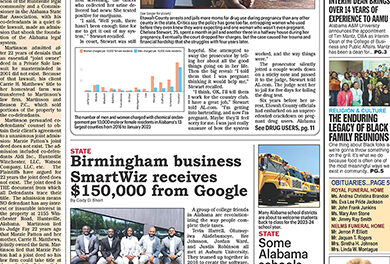By Aria Brent
AFRO Staff Writer
abrent@afro.com
Sometimes practicing self-care isn’t about what you’re doing for yourself, but what you’re not allowing others to do to you. Environments and situations that aren’t beneficial can’t always be avoided. However, creating a set of boundaries can help soften the impact it has on you.
Whether it be with friends, family or colleagues– setting boundaries are a vital part of self-care and necessary for a healthy relationship.
“I remember the first boundary I set was with my best friend. I remember telling her what I need and what a healthy relationship looked like for me,” said Storm Estes, founder of Survivors not Victims, a non-profit organization focused on helping women of color recover from their experiences with sexual and domestic violence. “Not once have either one of us felt like those boundaries were harmful or problematic or like they needed to be revisited or revised. The only thing it’s ever done is help us have the best friendship possible.”

Estes noted that she’s no stranger to setting boundaries and it’s something she practices in all aspects of her life, including at work. The women’s protection advocate explained that even with how much she loves the work she does, she sets boundaries within it due to how heavy her field of work can be.
“The work that I do is really heavy and it’s tiring and it can often take the last of what you have to give. In order to respect the boundaries that I put in place to protect my own needs, I put [work] on the shelf once the work day is over,” she explained. “As the founder of this organization, and with it being so near and dear to my heart, this is personal for me. But I have to constantly set boundaries because it’s easy for me to overly dedicate myself.”
Often misunderstood and incorrectly interpreted, a lot of people on the receiving end of a boundary mistake the self-care tool as an indicator that someone doesn’t want a relationship with them anymore. However, Estes explained that it’s actually quite the opposite and it should be seen as a tool to help create and maintain healthy relationships
“I think people hear the word ‘boundary’ and it feels like you’re constricting them to a certain space and they can only move in a certain way. But boundaries mean that I love you so much and want this relationship so much that I have to enforce what I need for it to work between the both of us. And I’m communicating that because I want this to be a healthy relationship on both ends.”

Ashley Bryan, Psy.D, has an extensive background in boundary setting from both her personal experiences and the help she’s provided her patients. The mental health specialist shared similar sentiments to Estes, noting that implementing boundaries often saves relationships– not destroy them.
“I often think that boundaries are viewed as a way to push people away but I think that boundaries can be an act of love,” said Bryan.“If you care about someone enough to set that boundary then that means you’re willing to put a tool in place so that you can work on that relationship. Without boundaries relationships can blow up.”
Similar to Estes, Bryan also works in a field that is extremely personal, thus making her more likely to take on the baggage of her clients. The young professional recalled how strenuous her workload was as a student until she was both shown and encouraged to set a boundary in her professional life.
“While being a psychologist is a beautiful profession, it can also take a toll on you because you’re absorbing everyone’s stories and experiences. I didn’t learn how to set boundaries throughout grad school,” she said. “I don’t think the model of grad school allowed for that. I found myself pushing myself which led to a lot of burnout and me not feeling like my best self.”
“It took me coming into my internship in my last year of my program to set boundaries. They forced me to do self-care and wouldn’t allow us to work more than 45 hours,” said Bryan. “They were really intentional about teaching us how to sustain ourselves. I noticed a huge difference in terms of my energy around the people I love, I had more space to hold for people and I was happier.”
It was noted by Estes that one of the most important parts of setting a boundary is enforcing it with yourself. She explained that you can’t force other people to prioritize or respect your boundaries, but standing firm within them regardless of other people is a great way to assure they are followed.
“I will honor my needs, I will honor my boundaries. I can not make anybody else in this world respect my boundaries. And I’ve learned to be okay with the fact that no one else is obligated to respect my boundaries,” she said. “But in return, I’m not obligated to give them my company. I tell people all the time ‘ my love is unconditional, my presence is not,’ and there are people I will love until the day I die but they’ll never see me in person again. I love that I’ve gotten to a point in my life where that’s how much my needs matter to me. I know that my needs are valuable.”
Just as setting boundaries can be empowering, having them enforced with you can be hard. Bryan provided advice for those who are on the receiving end of a boundary enforcement, encouraging them to look at the situation and to be mindful that it might not be about you as an individual but the dynamic of the relationship.
“I would encourage those folks to take a step back and think ‘Why is this person setting a boundary with me? Does this have to do with me? Does it have to do with them?’ Also, remind yourself that if this person is willing to have a conversation around setting a boundary there’s some level of care that they have for this relationship,” she said.
“Sometimes it’s not always a reflection on you,” Bryan continued. “And if you love this person, taking the time to hear them and see where they’re coming from might be really helpful. Cause while it might not be your intention to make them feel a certain type of way, it still has an impact.”
The post Setting boundaries: A vital part of self-care appeared first on AFRO American Newspapers.











